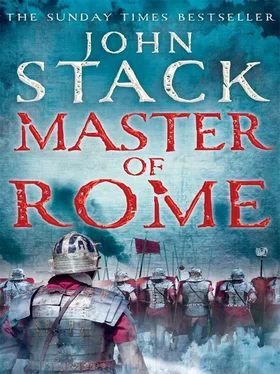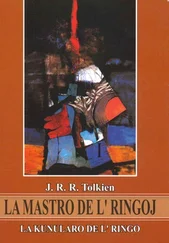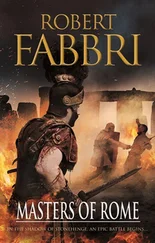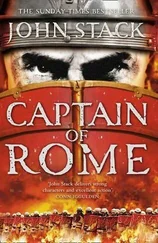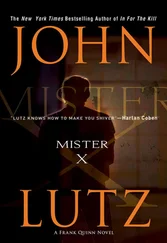John Stack - Master of Rome
Здесь есть возможность читать онлайн «John Stack - Master of Rome» — ознакомительный отрывок электронной книги совершенно бесплатно, а после прочтения отрывка купить полную версию. В некоторых случаях можно слушать аудио, скачать через торрент в формате fb2 и присутствует краткое содержание. Жанр: Исторические приключения, на английском языке. Описание произведения, (предисловие) а так же отзывы посетителей доступны на портале библиотеки ЛибКат.
- Название:Master of Rome
- Автор:
- Жанр:
- Год:неизвестен
- ISBN:нет данных
- Рейтинг книги:4 / 5. Голосов: 1
-
Избранное:Добавить в избранное
- Отзывы:
-
Ваша оценка:
- 80
- 1
- 2
- 3
- 4
- 5
Master of Rome: краткое содержание, описание и аннотация
Предлагаем к чтению аннотацию, описание, краткое содержание или предисловие (зависит от того, что написал сам автор книги «Master of Rome»). Если вы не нашли необходимую информацию о книге — напишите в комментариях, мы постараемся отыскать её.
Master of Rome — читать онлайн ознакомительный отрывок
Ниже представлен текст книги, разбитый по страницам. Система сохранения места последней прочитанной страницы, позволяет с удобством читать онлайн бесплатно книгу «Master of Rome», без необходимости каждый раз заново искать на чём Вы остановились. Поставьте закладку, и сможете в любой момент перейти на страницу, на которой закончили чтение.
Интервал:
Закладка:
The Carthaginians responded, absorbing the initial momentum of the Roman counter-charge, but the respite had been gained; the Romans were no longer threatened with being pushed into the sea. Now the fight was on two wings, their backs to fellow legionaries, but in escaping the fate ordained by the Carthaginians, Septimus had gambled all. If they could not force a breach and split the Carthaginian front, they would be surrounded, and slaughtered like the men who stood their ground at Tunis.
Atticus grunted as he wrenched his sword free from the flesh of a Carthaginian soldier. His throat was dry, his breathing laboured, and he had a vile taste of blood and sweat in his mouth. His shield arm was numb, with only the straps to his forearm holding the hoplon in place, and his shoulder registered the strike of yet another blade while his body screamed for rest. He retched bile into the back of his throat as his battle lust demanded greater effort.
He sensed Septimus beside him, the centurion cleaving a path through the enemy ranks, and Atticus fought to keep pace, knowing that if any man were to become isolated he would be overwhelmed in seconds. The tip of the wedge was halfway across the deck and the amorphous Carthaginian formation continued to adapt, concentrating their numbers ahead of the wedge, trying to blunt the head of the attack. But it was a forlorn hope; the Romans would not be stopped and they pressed further on, while overhead the pendulum of battle followed their course.
Hamilcar shouted to his men to stand fast, his call lost in the din of battle, heard only by those closest to him; their scant numbers could do little to stem the momentum of the Roman advance. He had been moments from victory, but the disciplined Roman soldiers had broken out of his vice and Hamilcar realized that the fate that was befalling his fleet would soon meet his crew. Split in two, Hamilcar knew his men would founder, unable to stand against a wall of Roman legionaries who no longer feared an enemy to their rear. That moment of collapse was but moments away and Hamilcar accepted the inevitable, turning his fury to the fight within a fight he was honour bound to seek.
He looked to the head of the Roman formation, seeing again the towering stature of the centurion and, at his side, through the crush of men, he saw the Greek’s scarred face. He went to press his way forward but just then he sensed the first ripples of retreat in the men around them, the temper of their war cries changing, many of them glancing over their shoulders, no longer looking to the enemy at hand. He shouted one last time at his men, calling on them to take heart for Carthage and the Alissar, but they were beyond hearing, the instinct to survive resurfacing through the fog of battle lust.
The Romans reached the far rail and almost as one the Carthaginians stepped back, as if a command had been issued, the seasoned warriors knowing the Romans could no longer be defeated in formation fighting, knowing that from now, each man would stand alone, and that Mot already walked amongst them, selecting those who would be spared and those who would follow him through the gates of the underworld.
Hamilcar alone stood steady, his eyes locked on the Greek, the separating mass of his men giving him a clear line of vision. Perennis was but ten yards away, his sword charged outward, the Romans already in a line that would sweep the length of the deck. One of Hamilcar’s men bumped against him as he stepped back but Hamilcar ignored him, the command of his men no longer important. He was a warrior of Carthage and his enemy stood before him: nothing else mattered. He drew in a breath, steeling his will for the fight and he roared out a single word of challenge: ‘Perennis!’
Atticus heard his name clearly and he darted around, seeing Hamilcar standing square while those around him backed away. He reacted without thinking, surging forward from the Roman line, his sword held high as he roared Barca’s name in answer. Behind him he heard the command for the lines to advance, one facing forward and the other aft, but Atticus ignored them. He was unfettered, and the enemy who had taken much from him stood to his fore.
The Carthaginians were retreating but one turned to challenge Atticus. Without check, he bunched his weight behind his shield and shoved him aside, never taking his eyes off Barca. His brought his sword down and, as he covered the final yards, he saw Barca drop into a defensive crouch, his face a belligerent mask of hatred, his mouth opened wide as he bellowed a war cry.
Atticus slashed his sword around, using all the force of his momentum to land a strike on Hamilcar’s flank. Hamilcar dropped his shield, accepting the blade, but the force of the blow knocked Hamilcar off balance and he sidestepped before bringing his own sword around, looking to strike the Greek in the flank as he turned into the fight. Atticus parried the blade, circling his sword in a wide arc to expose Hamilcar’s centre, but the Carthaginian sensed the danger and he whipped his sword back to break the contact.
The two men stepped in to close the distance between them, neither man fighting for space or looking to circle his enemy. Their blind hatred drove them deeper into close combat, their eyes locked on each other, silently repeating the curses and vows of retribution for losses suffered through years of warfare. Hamilcar slammed the edge of his shield into Atticus’s shoulder and stabbed forward with his sword. Atticus reacted reflexively, swiping down with his own weapon, and although he parried the strike, the tip of Hamilcar’s blade sliced across his thigh, drawing first blood.
Atticus backed off but Hamilcar followed through, never allowing him to regroup, and the Carthaginian used his momentum to begin a series of sequenced strikes, his sword becoming a blur of steel that Atticus could only avoid by giving in to his instincts, his sword arm reacting faster than conscious thought. Again Atticus felt the weight of fatigue but he refused to relent, knowing that a second’s respite would cost him his life and leave the deaths of Gaius and Corin unavenged.
The thought steeled his determination and he stood fast, drawing on Hamilcar’s attack, not willing to give one further step to his enemy. He matched Hamilcar’s ferocity, his strength finding reserves in his will to finally end the fight. He looked for the chance to counter-attack but Hamilcar’s assault never abated, his sword strikes constantly pushing Atticus to defend with ever-increasing desperation. A cold panic crept into his thoughts, a dread terror that Hamilcar was but seconds away from penetrating his defence. He furiously suppressed the growing fear in his mind, searching for a way through, and suddenly he saw a weakness in the Carthaginian’s attack.
Hamilcar’s blade hammered off his shield and Atticus pushed out against the strike, knocking the Carthaginian’s sword away, exposing his centre. Hamilcar reacted to the threat, bringing his shield in close for the expected sword strike, but instead Atticus suddenly whipped his own shield back around, the heavy iron edging striking Hamilcar in the side of the face, and the Carthaginian wheeled away, stunned by the blow. Atticus seized the chance and stabbed forward with his sword, the tip finding Hamilcar’s exposed right shoulder. The blade punched through his defences, the sword driving deeply into his flesh before Atticus whipped it back, twisting the blade as he did. Hamilcar screamed in pain as he fell to the deck, landing at the foot of the Roman line, which had already advanced halfway across the main deck.
A legionary made to finish the Carthaginian foe at his feet, but Atticus shot forward, his sword staying the fatal strike as the line advanced beyond the fallen Carthaginian commander.
‘Finish it,’ Hamilcar cursed as he looked up at Atticus, his hand clasped over his wound.
Читать дальшеИнтервал:
Закладка:
Похожие книги на «Master of Rome»
Представляем Вашему вниманию похожие книги на «Master of Rome» списком для выбора. Мы отобрали схожую по названию и смыслу литературу в надежде предоставить читателям больше вариантов отыскать новые, интересные, ещё непрочитанные произведения.
Обсуждение, отзывы о книге «Master of Rome» и просто собственные мнения читателей. Оставьте ваши комментарии, напишите, что Вы думаете о произведении, его смысле или главных героях. Укажите что конкретно понравилось, а что нет, и почему Вы так считаете.
